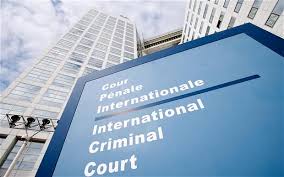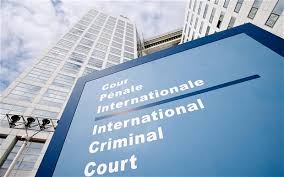
A jehadi leader accused of demolishing ancient mausoleums in Timbaktu is the first case that would come up for trial in the international criminal court’s first war crimes trial for destruction of cultural monuments this week.
Medieval shrines, tombs of Sufi saints and a mosque dating back to the 15th century that formed part of the Unesco world heritage site was allegedly demolished by Ahmad al-Faqi al-Mahdi in the northern Malian city.
In dealing with the aftermath of Mali’s conflict, the court’s chief prosecutor, Fatou Bensouda took a decision to prioritize obliteration of heritage could create controversy in Africa but is likely to boost the ICC’s international profile.
Those responsible for eradicating historical sites have largely escaped punishment since Balkan warlords were charged by the international criminal tribunal for the former Yugoslavia with shelling Dubrovnik, wrecking the ancient bridge at Mostar and damaging the national library in Sarajevo in the early 1990s.
Destruction of cultural heritage is not a second-rate crime. It’s part of an atrocity to erase a people
Ironically however no charge was put against any Taliban or al-Qaida leader for the destruction of Afghanistan’s sixth century Bamiyan Buddhas which were dynamited in 2001.
The looting of Cambodia’s Hindu temples by the Khmer Rouge was not part of the genocide trials of the Cambodian ruling group. Destruction of Assyrian statues from Nineveh or razing Roman ruins in Palmyra never brought indictment for Islamic State leaders.
The rebellion of al-Qaida-inspired Tuareg militias, armed with weapons from Libya, in the central African state in 2012 led to the damage inflicted on Timbuktu, known as “the city of 333 saints”.
The prime accused is Faqi, a local ethnic Tuareg, and the head of Hesbah, known as the Manners’ Brigade, which considered the mausoleums – built to pay homage to deceased saints – to be blasphemous.
Faqi is accused of directed the attack and destruction of 10 ancient mud-brick buildings in June 2012 and July 2012. Built in 1440 when Timbuktu was a regional centre for learning, Sidi Yahya mosque was one of the desecrated sites. It contained Prof Sidi Yahya’s mausoleum.
During the Islamists’ reign of terror, around 4,000 ancient manuscripts were also lost, stolen or burned. After the French forces intervened, Ansar Dine was pushed out of Timbuktu in 2013. Last September Faqi was arrested in neighbouring Niger and sent to the Netherlands.
“I am from the Tuareg tribe. I was born about 40 years ago. I am a graduate of the teachers’ institute in Timbuktu and I was a civil servant in the education department … beginning in 2011,” Faqi said at his first remand appearance.
The first person the ICC has put on trial for the Mali conflict is Faqi. He court has however come under criticism that no major figure in the Tuareg uprising has been charged.
“Politically, there will be those who will question why Bensouda is focusing on ancient sites rather than going after rape, torture and murder convictions, but destruction of cultural heritage is not a second-rate crime. It’s part of an atrocity to erase a people. I hope it will act as a deterrent to similar acts in other countries,” Mark Ellis, chief executive of the International Bar Association, who specialises in war crimes cases said.
(Source:www.theguardian.com)
Medieval shrines, tombs of Sufi saints and a mosque dating back to the 15th century that formed part of the Unesco world heritage site was allegedly demolished by Ahmad al-Faqi al-Mahdi in the northern Malian city.
In dealing with the aftermath of Mali’s conflict, the court’s chief prosecutor, Fatou Bensouda took a decision to prioritize obliteration of heritage could create controversy in Africa but is likely to boost the ICC’s international profile.
Those responsible for eradicating historical sites have largely escaped punishment since Balkan warlords were charged by the international criminal tribunal for the former Yugoslavia with shelling Dubrovnik, wrecking the ancient bridge at Mostar and damaging the national library in Sarajevo in the early 1990s.
Destruction of cultural heritage is not a second-rate crime. It’s part of an atrocity to erase a people
Ironically however no charge was put against any Taliban or al-Qaida leader for the destruction of Afghanistan’s sixth century Bamiyan Buddhas which were dynamited in 2001.
The looting of Cambodia’s Hindu temples by the Khmer Rouge was not part of the genocide trials of the Cambodian ruling group. Destruction of Assyrian statues from Nineveh or razing Roman ruins in Palmyra never brought indictment for Islamic State leaders.
The rebellion of al-Qaida-inspired Tuareg militias, armed with weapons from Libya, in the central African state in 2012 led to the damage inflicted on Timbuktu, known as “the city of 333 saints”.
The prime accused is Faqi, a local ethnic Tuareg, and the head of Hesbah, known as the Manners’ Brigade, which considered the mausoleums – built to pay homage to deceased saints – to be blasphemous.
Faqi is accused of directed the attack and destruction of 10 ancient mud-brick buildings in June 2012 and July 2012. Built in 1440 when Timbuktu was a regional centre for learning, Sidi Yahya mosque was one of the desecrated sites. It contained Prof Sidi Yahya’s mausoleum.
During the Islamists’ reign of terror, around 4,000 ancient manuscripts were also lost, stolen or burned. After the French forces intervened, Ansar Dine was pushed out of Timbuktu in 2013. Last September Faqi was arrested in neighbouring Niger and sent to the Netherlands.
“I am from the Tuareg tribe. I was born about 40 years ago. I am a graduate of the teachers’ institute in Timbuktu and I was a civil servant in the education department … beginning in 2011,” Faqi said at his first remand appearance.
The first person the ICC has put on trial for the Mali conflict is Faqi. He court has however come under criticism that no major figure in the Tuareg uprising has been charged.
“Politically, there will be those who will question why Bensouda is focusing on ancient sites rather than going after rape, torture and murder convictions, but destruction of cultural heritage is not a second-rate crime. It’s part of an atrocity to erase a people. I hope it will act as a deterrent to similar acts in other countries,” Mark Ellis, chief executive of the International Bar Association, who specialises in war crimes cases said.
(Source:www.theguardian.com)





